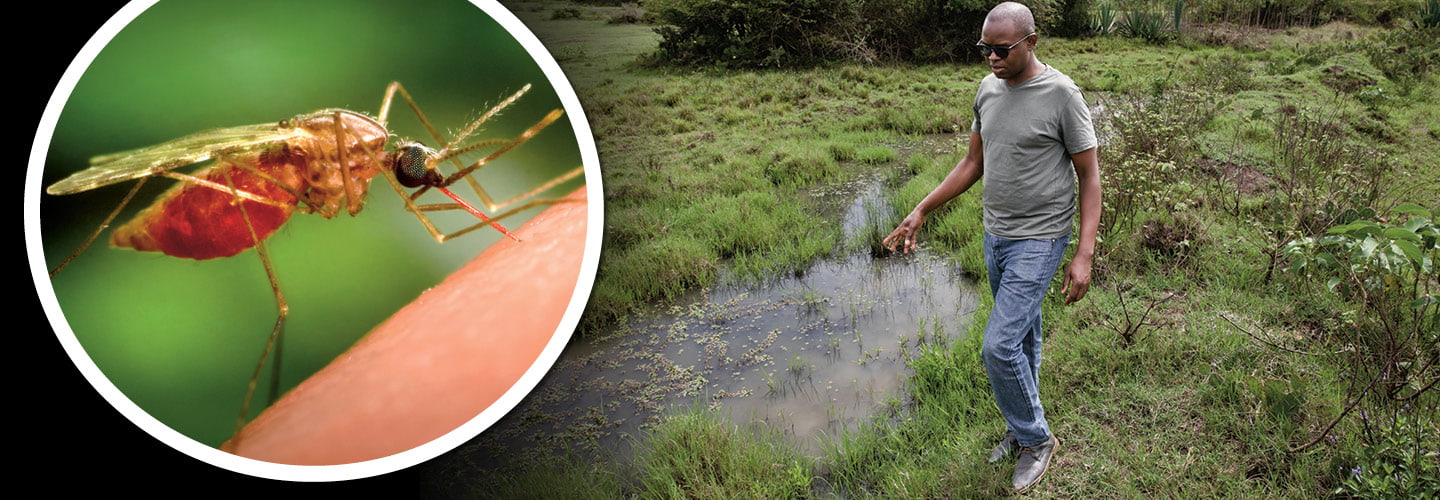Along hundreds of miles of Lake Victoria’s shoreline in Kenya, a squadron of young scientists and an army of volunteers are waging an all-out war on a creature that threatens the health of more people than any other on Earth: the mosquito.
They’re testing new insecticides and ingenious new ways to deliver them. They’re peering into windows at night, watching for mosquitoes on sleeping people. They’re collecting blood—from babies, from moto-taxi drivers, from goatherds and their goats—to track the parasites the mosquitoes carry.
But Eric Ochomo, the entomologist leading this effort on the front lines of global public health, stood in the swampy grass, laptop in hand, and acknowledged a grim reality.
“It seems,” he says, “as though the mosquitoes are winning.”
Less than a decade ago, we humans appeared to have gained the clear edge in the long fight against the mosquito. But over the past few years, that progress has reversed.
A group of young scientists and volunteers are working along the coast of Lake Victoria in Kenya. They are fighting a creature that threatens the health of more people than any other on Earth. They are attacking the mosquito.
They’re testing new insecticides and new ways to deliver them. They’re looking into windows at night. They are watching for mosquitoes on sleeping people. They’re collecting blood from everyone including babies, moto-taxi drivers, and goatherds. They are even testing the goats. They are tracking the parasites the mosquitoes carry.
Eric Ochomo is the entomologist leading this effort on the front lines of the global public health crisis. He acknowledged a grim reality while standing in the swampy grass.
“It seems,” he said, “as though the mosquitoes are winning.”
Less than 10 years ago, we appeared to have gained the clear advantage in the long fight against the mosquito. But over the past few years, that progress has reversed.

